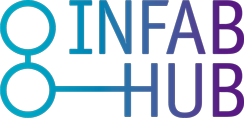Company
Automotive OEMs
Activity
Partners
Itera Técnica
Challenge
The PSA Group and the RENAULT-NISSAN-MITSUBISHI alliance are among the world’s leading car manufacturers, bringing together the brands PEUGEOT, CITRÔEN, DS, VAUXHALL, OPEL, RENAULT, DACIA, NISSAN, LADA, MITSUBISHI and ALPINE. These groups represent about 30% of car sales in Europe.
Both the PSA Group and the RENAULT Group have plants in Spain: Vigo, Madrid, Valladolid, Palencia and Zaragoza.
The plant of the PSA group Vigo needed a technological platform for automatic inspection of external attributes in vehicles through the use of artificial vision and machine learning technology. These platforms should be “cost effective” with amortization periods of no more than one year, scalable and flexible.

Solution
The following technologies were used for the development of the platform for inspection of attributes in the production lines in the plants of the OEMs:
- CV (Computer vision) IP (Image processing) HCP (High Performance Computing) OPEN SOURCE: PYTHON, LINUX, OPEN CV CNN (Convolutional Neural Networks)
Impact and results
The implementation of the automated inspection system for external attributes has generated the following average returns in the OEM’s production lines
- Inspection quality improvement. Unitary and online inspection system. All external attributes of all vehicles are inspected. By means of manual inspection only a part of the attributes are inspected and not all the vehicles.
- Improved vehicle quality traceability. The system is integrated with the line’s automatons so that the result of the inspection is recorded in the global factory database.
- Improvement of the paint shop productivity. The number of operators in the production process is reduced. Taking into account an average of 1 operator per shift and line inspecting external attributes and for a 4 shift production scenario, we would have an amortization of 4 operators/year for each automatic inspection facility.
Results in figures
- The system allows 100% inspection of cords in 100% of vehicles that transit the line. In the case of manual inspection, it was estimated that 50% of cords were controlled in 70% of vehicles.
- The system is amortized in one year with a productivity gain of 4 operators per line in 4 production shifts. In subsequent years the savings in personnel costs are estimated at around 200,000 euros per year per line.
- 90% reduction in quality incidents.

